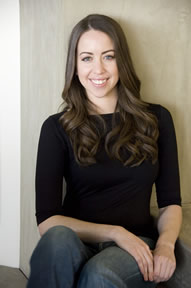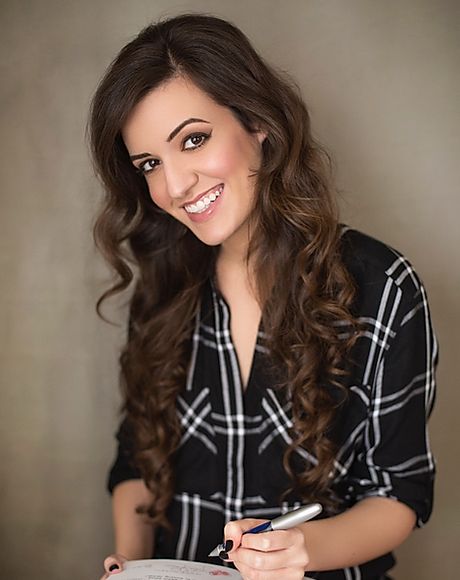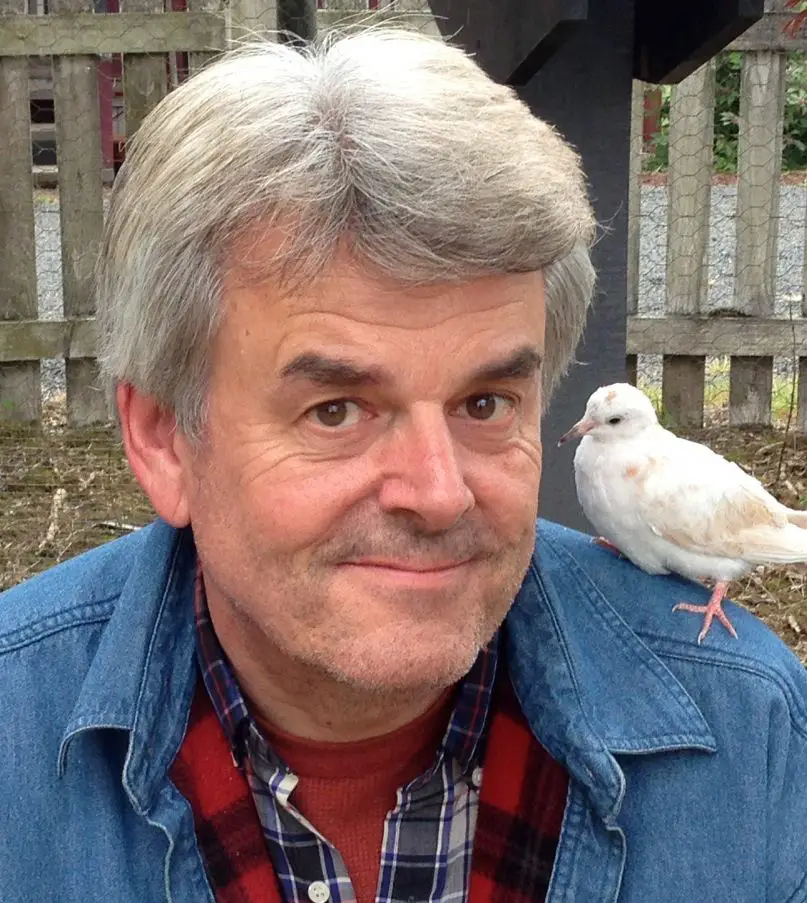We've all been there, staring at a blank laptop screen, wondering why it's so impossible to write one sentence when others write thousands effortlessly.
Do other authors who've published dozens of books ever encounter the oh-so dreaded writer's block?
If so, then how do they overcome it?
Lucky for us, we now have the answer.
Twenty-one in fact.
I recently sent out my carrier pigeons across the land to writers far and wide with just one simple question:
“How do you overcome writer’s block and stay inspired
and motivated to write?”
The response was... well, overwhelming to say the least. There are nuggets of gold in every single response, and I hope you get as much value out of these posts as I did!
"I love you, so I need to be straight with you about this 'Writer's Block' business.
Pretend you don't have the luxury of a special and imaginary "block" that makes it so you are unable to write.
Pretend you have one of the many vocations in the world that is not allowed to take an extended time-out because the magic muse isn't flitting about your mind at just the right angle.
If you want to come up with a reason not to write, there are zillions to choose from.
If I were you, I would outlaw the one popularly called Writer's Block. And the others, too.
A lumberjack can't call his boss and say he won't come in to work today because he has "Lumberjack's Block." Neither can you. You're not allowed any more.
Just write. Stop not writing.
Your "Writer's Block" is probably just fear. And it is scary.
But be brave and don't invent excuses, or take the ones other frightened writers have taken. That's too easy!
You have to be bad for a while. Write badly instead of not writing at all. A funny thing will happen. You'll get good.
"Write badly instead of not writing at all. A funny thing will happen. You'll get good. " - S.D. Smith
"Write badly instead of not writing at all. A funny thing will happen. You'll get good. " - S.D. Smith
But It will take time. There is no shortcut. Seek out the long cut. Show up. The truth is that it is hard, but you can do it. And you will, if you just don't stop."
- S.D. Smith sdsmith.com
K.M. Weiland
Award-winning and internationally published author, who helps writers become authors over at Helpingwritersbecomeauthors.com
"Certainly one of the most important would be doing away with the fallacy that inspiration is something that just happens.
Too often, I think we sit around, waiting for inspiration to hit us like a lightning bolt.
But what we’re not realizing is that inspiration is much more likely to zap us if we’re already doing our part: showing up, sitting at our desks every day, typing away.
I am very fond of what Peter de Vries once said in an interview,
that “I write every day when I’m inspired, and I see to it that I’m inspired at nine o’clock every morning.”
"We want to make inspiration more mystical than it is, when really inspiration favors those who are in the trenches, writing away." - K.M. Weiland
I think we want to make inspiration more mystical than it is, when really inspiration favors those who are in the trenches, writing away.
If you want to be a writer, you write. We can’t allow ourselves to have excuses."
- K.M. Weiland www.kmweiland.com
"I began my career working in a magazine office, and for ten years I had the habit of showing up at 8am, then sitting at a desk working until 5pm.
I've kept that practice ever since, and never sit around waiting for inspiration.
The only way through writer's block is to force yourself to keep writing, silencing all those negative voices, and forcing completion of a "guilt-free draft."
When you look at it the next day, that draft rarely looks as bad as it felt at the time."
~ Philip Yancey www.philipyancey.com
Samantha R. Glas
Author of The Girls Who Frosts Cakes who helps writers to write like a BOSS over at Writinglikeaboss.com
"I keep myself inspired to write by continuously immersing myself in my story:
I find it helpful to engage in my work beyond the actual writing.
Through resources such as creating aesthetic boards on Pinterest, building playlists that represent the story, and reading books similar to mine, I stay motivated to write far longer than I would normally.
All of these contribute to daydreams and plot bunnies, ensuring I grow to love my story: which is truly the cornerstone of inspiration."
-Samantha R. Glas Writinglikeaboss.com
"When I find myself blocked in writing I usually need to do one of two things: More research, or more outlining.
Much of my writing is set in the past, in exotic locations, or both, so research is key.
"When I find myself blocked in writing I usually need to do one of two things: More research, or more outlining.
Much of my writing is set in the past, in exotic locations, or both, so research is key." - John J. Horn
I have a hard time progressing the story if I'm grasping to understand the atmosphere of the time and place I'm writing about.
I also find that I get blocked if I haven't sufficiently planned out where my story is going.
I may have stumbled down a rabbit-trail that is petering out because it doesn't sufficiently mesh with the rest of my plot.
So I take a step back, evaluate what is not working, and rework as needed."
-John J. Horn www.johnjhornbooks.com
Jessica Brody
Author of over seventeen published books including, Sky Without Stars, 52 Reasons to Hate My Father, and the Unremembered Series.
"To conquer Writer’s Block, you have to redefine writer’s block.
It’s not actually a block. If you’re physically capable of typing (or holding a pen), you aren’t blocked from writing.
You could literally write the word cat fifty times on the page and you’d technically be writing.
But it’s not what you want to write.
Writer’s block is just fear that’s been given a convenient excuse not to write. That excuse is called “Writer’s Block.”
But if you’re not actually blocked from writing, then you have no more excuse.
So what is that pesky feeling if it’s not actually writer’s block. It’s Writer’s Doubt.
It’s the fear that it won’t be as good as you want it to be. And the only way to get rid of writer’s doubt is to write anyway and give yourself permission to write badly.
If you have nothing bad on the page you have nothing to improve upon. Write badly. Write often. And don’t be afraid to write crap because crap makes great fertilizer."
- Jessica Brody jessicabrody.com
Oh! If you want more tips on Writer’s Block, check out Jessica’s online, on-demand course, CONQUERING WRITER’S BLOCK, available through the Writing Mastery Academy.
Michael La Ron
Author of over 33 published books including The Magic Trackers Series, Modern Necromancy, and Magic Souls. He also teaches and helps writers to improve their craft on his YouTube channel and at AuthorLevelUp.com
"I overcome writer’s block by staying connected to a bigger purpose, which for me is more than writing books.
It’s about using the gifts I was given to impact people’s lives in a positive way.
For me, writing is as sacred as prayer, and I believe that the act of writing a book is really just a conversation with God.
writing is as sacred as prayer, and I believe that the act of writing a book is really just a conversation with God. - Michael La Ron
Click to Tweet
He’s working with you and through you at the same time. Once I realized that, writer’s block disappeared for me forever."
-Michael La Ron AuthorLevelUp.com
Jenna Moreci
Bestselling Author of The Savior’s Champion and EVE: The Awakening and teaches and encourages writers over on her YouTube channel, Writing with Jenna Moreci
"My answer is simple: I write.
If I’m blocked, if I'm not inspired, if I’m not motivated, I write.
Once you get past the initial clunky sentences and awkwardness, the words start flowing, and you find your groove.
But that won’t happen unless you put your fingers on the keyboard and start typing. The only way out is through.”
- Jenna Moreci Jennamoreci.com
"I’ve never had writer’s block.
I’ve had days where I don’t want to write and days I feel uninspired but, as they say, art is 95% perspiration and 5% inspiration.
The key to being a professional writer is to keep your rear in the chair and write — good days, bad days, it makes no difference.
"The key to being a professional writer is to keep your rear in the chair and write — good days, bad days, it makes no difference." - Bill Myers
Click to Tweet
Sometimes it means writing uninspired stuff but there’s always a kernel there that you can go back and build upon.
Give yourself an easy to achieve quota of time each day to write — one hour, six hours, thirty minutes, it makes no difference — but stick to it regardless of how you feel.
I’m sure there are days farmers don’t want to farm, judges don’t want to judge, or mothers don’t want to mother.
But they do.
That’s what makes them farmers or judges or mothers. The same is true with writers. Writers are writers because we write."
- Bill Myers www.billmyers.com
Bryan Davis
Author of the wanted: Superheros series, Dragons in Our midst, Oracles of Fire, and many other children's fiction books.
"I don’t get traditional writers’ block.
My stalemates occur because I have a flood of ideas and I have a hard time choosing which option to take.
To battle that kind of block, I will write with one of the ideas in mind to see where it takes me. If I don’t like the result, I go back and try another idea.
It is time consuming, but it works for me.
Staying inspired comes from giving my protagonist an urgent story goal that involves a topic I am passionate about.
"Staying inspired, (to write), comes from giving my protagonist an urgent story goal that involves a topic I am passionate about." - Bryan Davis
That drives my character and me at the same time.
I look forward to getting back to my story to help my character achieve the goal, for both of our sakes."
- Bryan Davis www.daviscrossing.com
"I'm actually a big believer in the idea that you don't need to be inspired or motivated to write.
"I'm actually a big believer in the idea that you don't need to be inspired or motivated to write." - Hannah Heath
As someone who fights chronic pain and depression, there are many days in my life that I simply don't feel like writing.
I don't allow that to stop me because I know that, ultimately, writing always makes me feel a little better about the world.
Instead of waiting for inspiration, I choose to set a timer for ten minutes and just start writing.
Sometimes the writing is good, which is always a plus. Sometimes the writing is bad, but that's okay: That's what editing is for.
This system has worked incredibly well for me because it means that writers' block or lack of motivation can't ever stand in my way.
I get to write on my own terms.
With some perseverance and lots of editing, I ultimately end up with a story I can be proud of."
- Hannah Heath Hannahheath.com
Inspiration comes from three main sources.
1. Truth.
What has God been teaching me? What truths do I find fascinating?
I try to construct my stories to show these truths, and that is how I write from the heart. As I press on in my spiritual growth, I always have something new to write about.
2. Other stories.
When I see something done really well in another book, I ask, “How could I do something similar?”
If something in a book is poorly executed, I’ll ask, “How could I have executed it better? Could this turn into part of a story?”
3. Death.
I don’t like the pain, but when I “die to a story”, when beta readers point out its massive problems and my pride is broken, that’s often when I come up with my best ideas.
This is just like what Jesus said: "Most assuredly, I say to you, unless a grain of wheat falls into the ground and dies, it remains alone; but if it dies, it produces much grain.”
-Daeus Lamb StoryEmbers.com
"Here is a story from John Ortberg's If You Want to Walk on Water, You Have to Get Out of the Boat:
An art teacher ran an experiment in his ceramics class. He divided the class into two groups.
One would receive their final grade based on the quantity of pots they were able to make: for example, 50 pounds was worth an A, 40 pounds a B, and so forth.
The other half of the class would be graded on the quality of only one pot, but it had to be exquisite.
And the experiment began...
The first group made pot after pot, some small, some large, more, more, more.
The second group strategized, studied the ceramics of the masters, sketched and plotted, calculated, planned, and finally each made his one pot.
So which group won?
Interestingly, the group that was judged on quantity also ended up with the highest quality pots.
The second, strategizing, group found their pots beset with mistakes that they hadn't anticipated.
As the first group made pot after pot, they also learned to better produce works of art.
The moral of this story is that if you want to accomplish something, you must do it!
Don't talk about it, don't take classes, don't read books about it, unless you also start producing attempts.
"If you want to accomplish something, you must do it!
Don't talk about it, don't take classes, don't read books about it, unless you also start producing attempts." - Amy Deardon
Yes, your attempts may stink, and they are hard and impinge on your schedule, but they are also the only way to become better.
If you want to write a novel, then start by writing emails, blog entries, little scenes, anything.
Practically speaking here are some tips:
1. Learn the technique of freewriting in which you just write the words as they come into your head.
2. Don't set out on the uncharted page without taking a minute to review what you want to write for that session.
3. Commit to a daily, doable quota of words every day AND RECORD YOUR DAILY RESULT. I like to start with 300 words per day -- figure that if you can type 25 words per minute then you'll need about fifteen minutes to finish your quota. I like to keep a paper chart on my refrigerator and decorate good days with a smiley face to remind myself often that I'm doing a great job!
4. Don't write and edit at the same time. You cannot do it because these are two different processes. Just decide your words may be inelegant but you'll be the only one who sees them. Make time after you're finished to whip them into shape.
*
Don't be afraid. HAVE FAITH! Millions of people have finished books and there's no reason you can't be one of them.
Don't be someone who in ten years looks back on today and says, "Oh, if only I'd done this..."
- Amy Deardon amydeardon.com
"Writer's block can be caused by many different factors, therefore there isn't just one simple solution to writer's block, but many.
The best way to deal with this issue is to firstly identify what's "blocking" you.
"Writer's block can be caused by many different factors, therefore there isn't just one simple solution to writer's block, but many.
The best way to deal with this issue is to firstly identify what's "blocking" you." - Dave Hickman
Examine your story - are there issues with pacing? Character development? Do you not know where the narrative is going?
Step away from the computer and brainstorm possible solutions.
If you find your environment is hindering your progress, change your environment.
This may be as simple as putting on a playlist, or something more drastic like changing locations.
Constantly improving your craft and situation will keep you motivated to keep writing."
- Dave Hickman writersedit.com
Like Jerry Jenkins, I don't believe in such a thing as writer's block (https://jerryjenkins.com/writers-block/_)
As he notes, we don't write because of four things (one or more of these):
procrastination, distractions, perfectionism, and fear. There are solutions for all these.
As far as staying motivated or inspired to write (which is something else), being passionate and excited about the story you are writing is the key.
If you can't drum up enthusiasm to tell that story, maybe it isn't worth telling.
- C.S. Lankin Livewritethrive.com
"The best way for me to avoid writer's block is to spend a lot of time pre-thinking out my scenes.
I don’t sit down in front of a computer unless I know what I’m going to write.
Blank screens can be intimidating"
- Chuck Black perfect-praise.com
Julie Duffy
Public speaker on topics related to creativity, productivity, and community. She also challenges and encourages writers to write a story a day at Storyaday.com
"On some days it's easy to simply knuckle down and remember that I've been given a gift and it's my responsibility to work at it, no matter how hard it feels.
But those are the good days.
On days when I'm tired, or down, or when life is just harder, I find I need an arsenal of tricks to get myself started, to stay at my desk, and to not give up.
I use everything from timers (set a timer for 15 minutes!) to accountability groups, to deadlines, to lighting a particular scented candle or listening to a particular piece of music...
sometimes I start my writing day by reading over and editing what I wrote yesterday.
Sometimes I start by freewriting, or journaling. Sometimes I've been thinking about a story in the shower and I can sprint to my desk before my hair is dry, and just write.
But most important, I think, is to cultivate a deep respect for the power of storytelling in our world.
Humans are a storytelling creature. We share experiences in stories, all day long. We teach our children in stories. We share our values in stories. We reach out a hand to people across space and time to tell them 'you are not alone'.
"Humans are a storytelling creature. We share experiences in stories, all day long. We teach our children in stories. We share our values in stories. We reach out a hand to people across space and time to tell them 'you are not alone' " - Julie Duffy
It is important. And you must come to believe that you are important. Your experiences are unique. You are unique.
Even if you were to tell me the most hackneyed story ever, you would tell it in a way that only you can tell it.
And your retelling of Cinderella might be the one I need to pull me out of my bad mood today, and let me be a better mother to my children, a better wife to my husband.
Your silly story about a funny thing that happened to you once, might be the thing that makes someone feel like they are not unlovable, and that one more day on this planet might not be such a bad idea”
- Julie Duffy storyaday.org
"I believe writer's block to be a false phenomenon.
When we're struggling to write, it's easier to claim that something's blocking us than it is to complete the difficult internal work needed to uncover and address what's truly going on.
Sometimes we find ourselves "blocked" when we work beyond our capacities and run into burnout.
Other times, we feel "blocked" when we stubbornly strive to write through a plotline that just isn't working.
More often than not, it's simply easier to believe we're "blocked" than it is to sit down and write.
At the end of the day, the key to overcoming writer's block is intentionality.
If you aren't willing to look inside yourself to discover the internal obstacle holding you back, then you won't take the necessary steps to resolve the issue, regain your drive, and return to living your best writing life."
"If you aren't willing to look inside yourself to discover the internal obstacle holding you back, then you won't take the necessary steps to resolve the issue, regain your drive, and return to living your best writing life." - Kristen Kieffer
- Kristen Kieffer Wellstoried.com
I'm of the opinion that writer's block does not exist.
Now, when I say that, I don’t mean that you will never have the feeling associated with writer’s block or that people who say they have writer’s block are big fakers.
I’ve felt the feeling! I’ve been there.
But what people are really describing is one thing and one thing only: writing stopped being fun.
The best path through is to figure out the problem you need to solve, take a break, and then, when all else fails, force yourself to stare at the blinking cursor of death until you think of something.
- Nathan Bransford NathanBransford.com
“How do you overcome writers’ block and stay inspired and motivated to write?”
All of us at Writers In the Storm use this blog as as a vehicle to give back to other writers, and to honor all the writers to helped us on our own journeys.
For me personally, I stay motivated and inspired through writing sprints with other writers and by constantly learning.
I learn from the contributors at WITS, as they share their wisdom with our readers.
I learn via webinars and classes at places like Lawson Writers Academy, Savvy Authors, WFWA, RWA, Creative Live, AWAI, and Master Class.
And I learn by reading as much as I possibly can.
- Jenny Hansen Writersinthestorm.com
"My philosophy is to just take no notice of it.
More often than not, I’ve found writer’s block stems from either 1) a desire to be perfect, 2) diversions brought about by outside factors, and 3) uncertainty or irresolution over the story one is telling or wishes to tell.
To start off, every aspiring author needs to utterly abolish the conceit that a perfect story can be written in the first draft.
Such thought is absurd and entirely preposterous. There’s a reason first drafts are called first drafts.
As a fellow storyteller so eloquently put, “All my first drafts are horror stories.”
And he’s not speaking in reference to the genre.
Certainly, times will arise when inspiration strikes, and the words one puts on the page closely adhere to those that exist in the final product.
That, however, does not occur with any frequency; and often, one is left to other methods and designs. As is well known, the great Professor Tolkien toiled and laboured on The Lord of the Rings for close to fifteen years.
The end result was nothing short of brilliant, but the volumes published later detailing his writing process bear testament to this singular truth; and one can see this most acutely in the opening pages of “The Taming of Sméagol,” from Book III of Rings. “A few pages for a lot of sweat,” he tells his son, Christopher, and many long years later, one can easily believe it while poring over those drafts, which deteriorate into increasingly illegible scribbles and scratchings.
As for the matter of dealing with diversions and lack of vision, I must confess that I’ve found the latter to be the most challenging out of all three.
I am by nature, a very vision-oriented author, and I consistently require a goal or clear idea of what I wish to accomplish in a certain scene or chapter.
I can indeed settle back every here and there and "not think” and “just write,” but when you’re writing a story with very specific intentions in mind, that becomes almost impossible (for myself, at least).
There must be grounds. There must be justification. There must be purpose.
It’s akin to playing a piece of music while trying to make up the tune as you go along. It can be done, but it requires a great deal of work later on—work that could very well be done away with.
Once, however, you’ve brought to life a definitive melody, then you can focus all your efforts on performing that piece to the very best of your ability.
That said, here are several methods I have learned to apply whenever the words refuse to come:
1) The medium of music: I myself much prefer film scores to anything else (ranging from the estimable Howard Shore to Hans Zimmer and so forth), and such music can be greatly beneficial in separating yourself from the distractions and intrusions of everyday life, and better focus your attentions on what you wish to accomplish.
2) Reading great literature: As much as music aids and abets, some things can only ever be set right by reading. The reading of famous authors and writers, as I have found, can prove to be a profound source of inspiration or act as a catalyst to “get the words flowing.”
Usually, a brief digression into the worlds of Tolkien or Austen or other such persons can provide me with all the motivation I ever needed to spur me on as never before.
3) The fixing of perceived problems: One of the more deep-rooted reasons I was drawn to writing stories was the opportunity to “fix” and amend many of those selfsame problems so prevalent in the films and literature of our modern day.
I am of the firm belief that it is equally important to be a reader of bad fiction as it is to be a reader of well-wrought fiction. The reading of bad fiction can help shed light on what not to do and is capable of providing a powerful stimulus to “do better,” so to speak (just ask Christopher Paolini).
Of course, these are just a small handful in a host many different and equally deserving methods, but they are, as I have found, very instrumental in pushing me on to greater heights and newer horizons yet unseen.
If you’re a goal-oriented person like myself, force yourself to reach a specified word count every day or week.
The concept of putting progress bars on your website (as demonstrated and established by noted fantasy author Brandon Sanderson) holds a certain attractiveness to me; for it creates a sort of accountability with your audience.
Set a high mark or goal and reward yourself with something you enjoy once you overcome it (though, personally, writing is the thing I enjoy).
Beyond that, all I can say is persist, press on, and endure.
The acclaimed stories of our time were never written overnight, and it is folly to expect otherwise for yourself. In time, diligence will reap its due reward."
- Mathew Roland MathewRoland.net
And that's it!
How twenty-one authors and writers defeat the deadly beast of writer's block which holds so many of us back from achieving our writing goals and growing as writers.
Which of the tips above stood out to you the most?
And what do you do to overcome writer's block and stay inspired to write?
Let us know in the comments below!
Kathleen Ramm
Kathleen Ramm’s first writing project was a rip-off of the tortoise and the hare. She continues to write because when she was little she tried to enter Narnia multiple times, but they never let her in. Her only other alternative was to create worlds and characters of her own.
Kathleen joined Kingdompen because she was inspired to help writers at any level to write badly so that they can write goodly.
She enjoys writing with her siblings, doing taekwondo, and sketching. Her greatest accomplishment is getting first place in a Taekwondo tournament (and there was only one other contestant).























Yes! YES! Many times, I get “writer’s block” simply because I’m not interested in the storyline anymore. Then I scrap it up to a point I felt like it went wrong and continue writing from there. (It works really well because I type many of my stories on Microsoft Word. And if it’s one of the paper copies, if it was only a page or two of boring writing, then I can erase it. But if not….oh, well. Notebooks are only 50 cents or so at the nearby Target.
So happy this helped you!